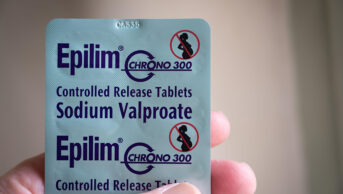
Kumar Sriskandan / Alamy
Attitudes and beliefs towards complementary and alternative medicine (CAM) are better predictors of whether patients will use these therapies than their clinical or demographic characteristics, according to a survey of patients published in Cancer
[1]
on 26 May 2015.
Up to two thirds of cancer patients seek complementary or alternative therapies after their diagnosis. In this study, the most commonly used therapies included vitamins, herbs, relaxation techniques and special diets.
While certain demographic characteristics are strongly associated with CAM use, including female gender, university education, white ethnicity, age (under 65 years) and current employment, it is the patient’s beliefs that are the strongest predictor. The patient’s expected benefit from CAM, perceived barriers to its use and ‘subjective norms’ (social attitudes towards CAM) are the best predictors, the researchers found.
The researchers recruited 969 people from oncology clinics at the Abramson Cancer Centre at the University of Pennsylvania for the survey. They found that non-white patients reported a similar level of expected benefit from CAM compared with white patients. But non-white patients reported higher perceived barriers to using CAM, perhaps reflecting that the therapies may be located in areas that are predominantly white, suggest the researchers.
Historically, CAM therapies were not supported by modern medicine, but recent studies demonstrating efficacy for selected therapies in the treatment of multiple cancer-related toxicities have led to their use as part of “integrative” oncology practice, say the authors.
By developing CAM programmes based upon attitudes and beliefs, barriers among underserved patient populations may be removed, they say.
References
[1] Bauml JM, Chokshi S, Schapira MM et al. Do attitudes and beliefs regarding complementary and alternative medicine impact its use among patients with cancer? A cross-sectional survey. Cancer 2015. doi:10.1002/cncr.29173.
You may also be interested in

NHS England says PCNs should work with community pharmacy ‘in the best interests of patient care’

People harmed by valproate could receive £100,000 payout, patient safety commissioner says
